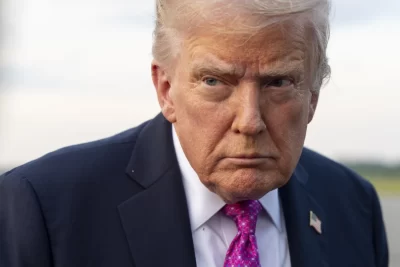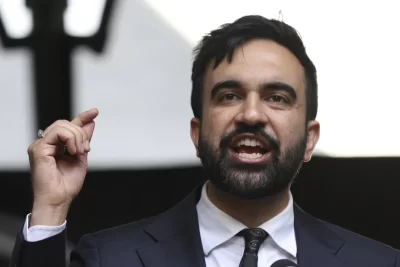
DUBAI, United Arab Emirates — Qatar hosted a summit of Arab and Islamic nations Monday in the hopes of presenting a united response to Israel’s attack on Hamas leaders last week in Doha. But as leaders offered different views about what to do, the group has few ways to restrain Israel in its war in Gaza.
Israel, which launched its invasion of Gaza in response to Hamas’ Oct. 7, 2023, attack, has retaliated against the militant group and other members of Iran’s so-called Axis of Resistance elsewhere, including in Iran, Lebanon, Syria, Yemen and now Qatar. That’s fueled wider anger among Mideast nations already enraged by the over 64,000 Palestinians killed during the war in Gaza — and growing concern that the U.S. commitment to protect Gulf Arab states may not be strong enough.
However, it remains unclear just what the summit will be able to achieve. Significant tensions among the nations meeting could blunt cooperation. They also have few levers they can pull. Condemnations from countries that Israel considers enemies, like Iran, will mean little.
Meanwhile, the nations attending that have diplomatic recognition deals with Israel may be reluctant to sever ties. Monday marked the fifth anniversary of the signing by Bahrain and the United Arab Emirates of the Abraham Accords that marked their formal recognition of Israel.
“Condemnations will not stop the missiles. Declarations will not free Palestine,” Malaysian Prime Minister Anwar Ibrahim said. “Severe, punitive actions must be put in place.”
Qatar’s ruler offers fiery speech
Qatar’s ruling emir opened the summit by accusing Israel of not caring about its hostages in Gaza and instead working to ”ensure Gaza is no longer livable.” Israel has said the goals of its war include bringing all the hostages back and defeating Hamas.
“If Israel wishes to assassinate the Hamas leaders, why then engage in negotiations?” Sheikh Tamim bin Hamad Al Thani asked. “If you wish to insist on the liberation of hostages, why then do they assassinate all negotiators?”
The speech was unusually fiery for the 45-year-old ruler of Qatar, which has served as key mediator in ceasefire talks.
“There is no room to deal with such a party that’s cowardly and treacherous,” he added. “Those who work consistently to assassinate the party in these negotiations will certainly do everything to ensure the failure of these negotiations. When they claim that they seek the liberation of hostages, that’s a mere lie.”
Sheikh Tamim also denounced Israel over what he called the “genocide” it is committing in Gaza — an assessment offered by multiple others at the summit. Israel vehemently denies it is committing genocide. It says Hamas is prolonging the war by not surrendering and releasing the hostages.
Turkish President Recep Tayyip Erdogan said Israel “should also be squeezed economically, as previous experience shows that such steps yield results.”
Iran, which hit a base in Qatar in June, is attending the summit
After the U.S. bombed Iranian nuclear sites in June, Iran struck Al Udeid Air Base in Qatar, a major hub for American forces — a move that angered Qatar. Nevertheless, Iran sent President Masoud Pezeshkian to attend Monday’s meeting, who urged those there to “isolate the aggressor.”
Pezeshkian did not touch on Iran’s attack on Qatar but did mention Israel’s war on Iran in June. He also warned that any country in the region could be next.
“The attack on Doha changed lots of miscalculations and wrong ideas,” he said. “It showed that no Arab or Muslim country is safe from the aggression of the regime in Tel Aviv. Tomorrow it can be any Arab or Muslim capital’s turn.”
The six-nation Gulf Cooperation Council, which includes Qatar, Saudi Arabia and the UAE, held its own meeting on the sidelines of the summit. Its members decided to take steps “to activate the mechanisms of joint defense and the Gulf deterrence capabilities,” they said in a statement, without elaborating.




